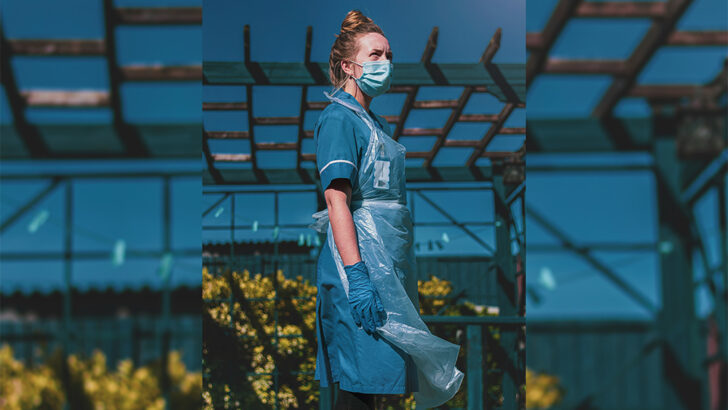So much of what is on TV is froth, trivia and superficiality, so it’s good to see a programme that goes deeper.
The Meaning of Life (RTÉ One, Sunday) returned for a new season last weekend, when the first guest was Sinead Burke, disability rights campaigner, businesswoman, fashion guru and teacher. It was an engaging interview, and as Sinead was such a great communicator, presenter Joe Duffy didn’t have a lot to do. She grew up in a Catholic family and remembers the rhythm of Mass and church going. This had faded, but she has kept the moral compass and values of those early days. She described a “deep respect” for religion.
She paid tribute to her parents, her “amazing advocates”, and to the schools where she experienced “acts of generosity and thoughtfulness and creativity”. Later she became a teacher in a Catholic ethos school and though she never had classes for Communion or Confirmation, she would have been happy to engage. If back then there had been the variety of school types available nowadays, she said she might have made a different choice. She described herself as a very happy person who has “an amazing life”. Her status as a small person has made her conscious of accessibility issues for herself and for others. She loves that she can now lead an independent life.
She wasn’t sure about what happens when a person dies, but if she did meet a Person at “the pearly gates” she would primarily have a feeling of gratitude. At one point, on a very serious note, when Joe Duffy referenced Nazi medical experimentation on disabled people she decried the practice of eugenics – the idea that the world would be better off without certain types of people.
Not entirely unrelated, on Mornings with Wendy (Spirit Radio, Wednesday) Dr Brendan Crowley gave a timely response to a recent report to the effect that only 1% of doctors were willing to get involved in doing abortions. It was telling, he said, that the focus of media coverage was on that, rather than highlighting the 90% that weren’t involved. The Government’s values were shown by a particular anomaly – doctors providing abortion services, which involved three visits, were given €450 in each case. Those caring for mother and baby to term (12 visits) were given only €250 – paid more to end life than to sustain it, as presenter Wendy Grace pointed out. Dr Crowley suggested that “undeniable humanity of the unborn child” was being ignored, and instead the lie was peddled that abortion was some sort of genuine health care. He accused the Government of not dealing with the socio-economic pressures that propel women towards abortion, pushing just one approach only, the one that involved a “culture of death”.
On this topic it was telling that on Sky News (Friday) I noticed the scrolling news reported a sad event where a mother ‘and her unborn baby’ were killed in a traffic accident. And you might say there’s nothing remarkable there – in every situation where abortion isn’t an issue the entity in the womb is rightly regarded as a baby. Dehumanising or, to use a popular term, ‘othering’, kicks in when activists and even some doctors, opt for ending that life in a clinical or medical setting – reality denial in the cause of ideology.
On that same news programme, I heard Kamala Harris speaking of wanting to represent all Americans if she becomes president – really? Even pro-life people? The signs are not promising. And she spoke of protecting women and young girls – except the living unborn ones of course, but she didn’t mention that.
Damage to children was an issue on Ayesha Hazarika (Times Radio, Saturday) when Matt Newport, a British doctor, spoke of working in “atrocious” conditions in Gaza. The idea of procedures being done without anaesthetic and pain relief was upsetting. A texter upbraided it for being one-sided, but as the host rightly pointed out that it wasn’t an ‘either or’ situation, that you didn’t have to favour one side or the other. She excoriated Hamas for the brutality of October 7. So often the debate is polarised so it was good to see some balance.
On Sunday Morning with Trevor Phillips (Sky News) one commentator hit the nail on the head – Stephanie Flanders of Bloomberg Economics said that both sides were unable to see the humanity of the other side.


 Brendan O’Regan
Brendan O’Regan
